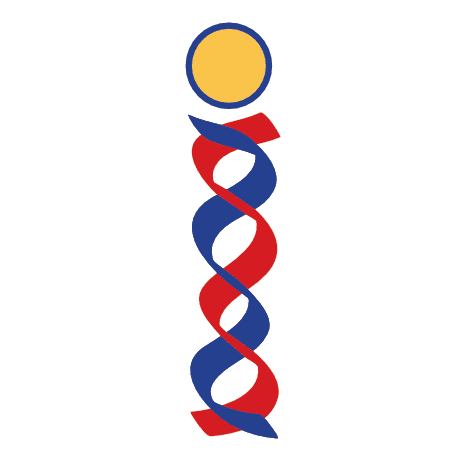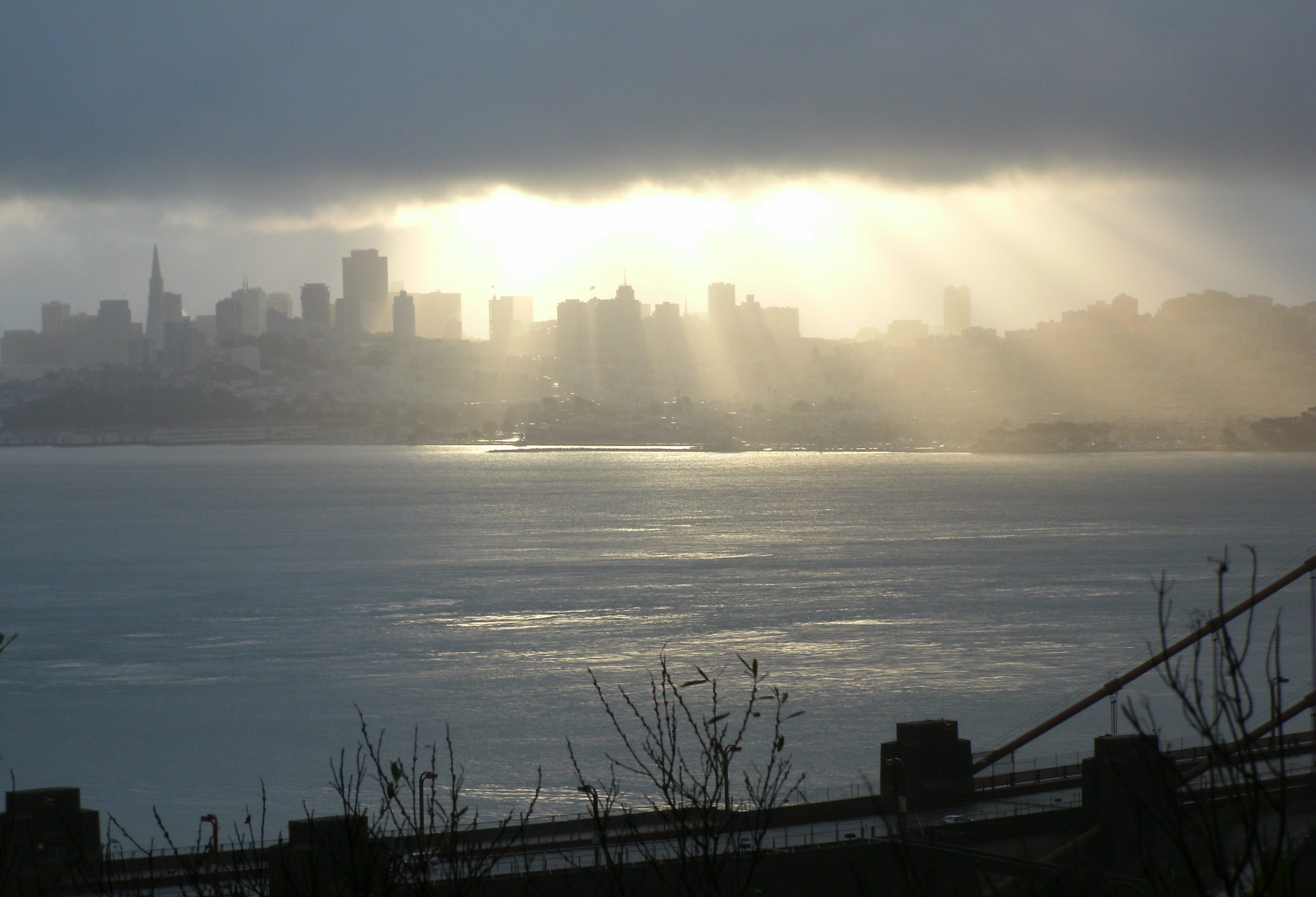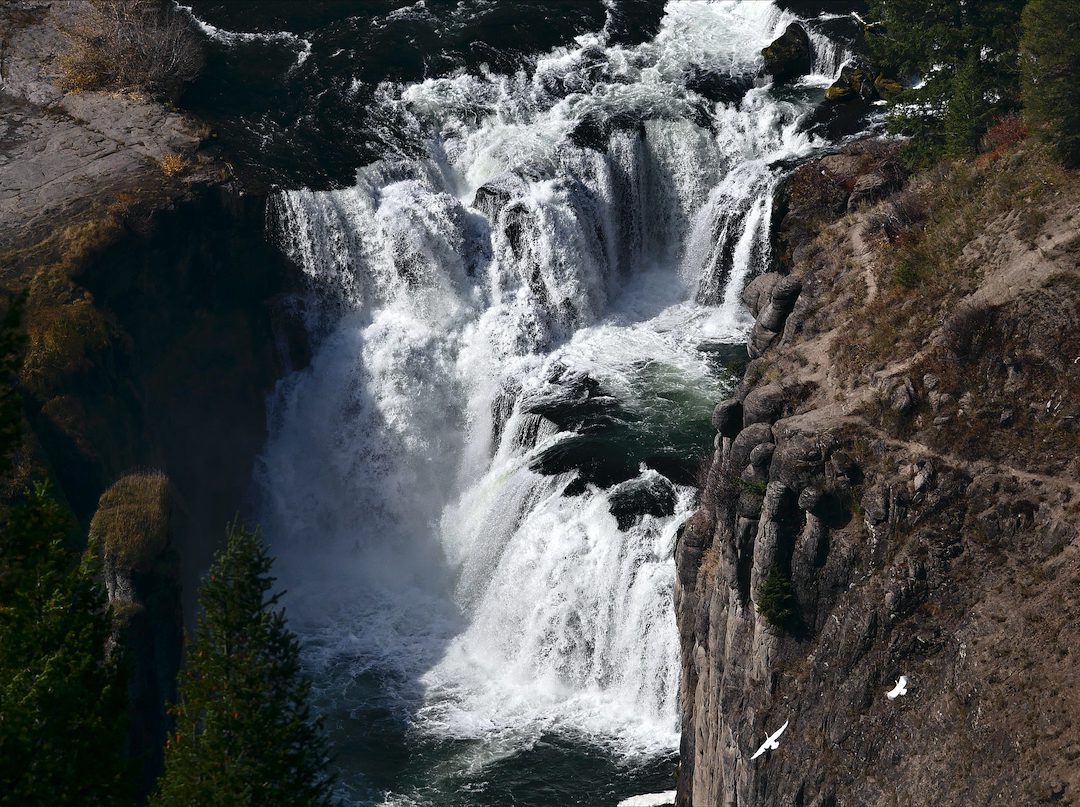James Lovelock of the Gaia theory died recently at his home along the Chesil Beach, on his 103rd birthday.
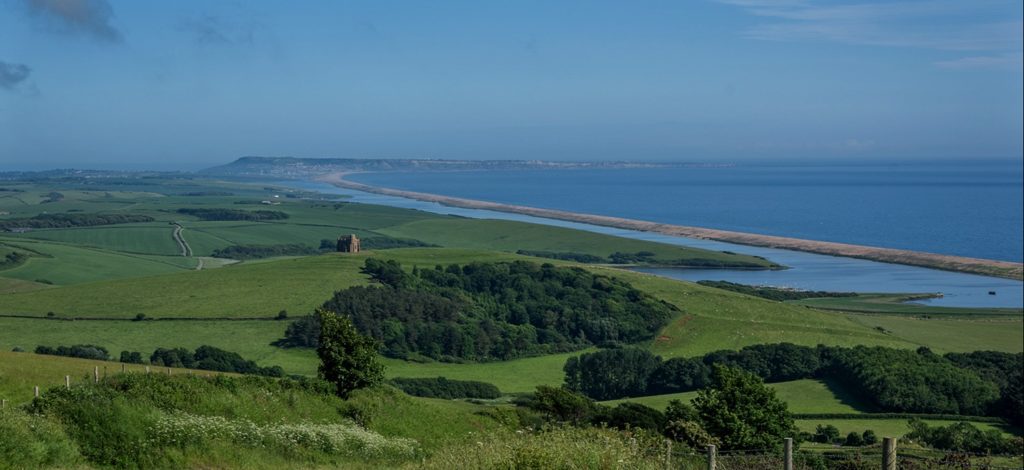
Chesil Beach from Abbotsbury Hill © James Loveridge 2022
Hothouse Earth by Bill Mcguire lets us know how dire the environmental situation is already, and how that’s likely to progress. The Invisible Rainbow by Arthur Firstenberg documents the price we’re paying in health and wellbeing for all the toys, gadgets, and appliances which make our lives more comfortable and convenient. Kerryn Higgs showed in Collision Course how we had to be brainwashed into consumer culture, and how ever-increasing resource consumption is simply not possible on a finite planet.
We learned to think beyond the single issues, whether climate change, pollution, resource consumption, etc. A more common term is now ‘Polycrisis’ because of how the list of challenges are all interrelated. My preferred term is ‘Omnicrisis’, because human consciousness, behavior and values, is central and overarching.
We haven’t been in balance with the natural world since about 1970: instead, we’ve been living on an ever-increasing overdraft, and shown no inclination to rein in our consumption. Because of that, An Inconvenient Apocalypse by Wes Jackson and Robert Jensen argues that societal collapse is now inevitable. We are caught in a big Ponzi scheme, and “We know how Ponzi schemes tend to end.”
Ross Gelbspan in his 2004 book The Boiling Point, recounts how he took a presentation on climate change to Congress. Afterwards, one congressman with a degree in chemistry came up to him and remarked, “I agree with everything that you’ve said, only I think it’s too late.”
Causes have consequences. It’s that simple.
Before the Civil War, Eunice Newton Foote realized the CO2 problem through a simple experiment with two Bell jars, and grasped the implication for the atmosphere when CO2 absorbed more heat than normal air. Robert Oppenheimer and Edward Teller explained the situation to the oil industry in 1958 and 1959. The oil industry’s own research demonstrated the same in the 70’s and 80’s, since then the climate issue has been known and clearcut. One recent argument, sadly, is that CO2 doesn’t produce heat, concrete heat-sink cities and EMF do. This is misleading. It ignores the experimental work done over a century ago, and no, CO2 doesn’t produce heat, it absorbs it. There’s a reason why CO2 and methane are called ‘greenhouse gases’.
But the problems we’re facing, and especially the next couple of generations, are bigger and more inter-related than that. It’s also about resource consumption, loss of biodiversity, the mega-drought in the American southwest, the levels of the Caspian Sea, the Amazon, Paraguay, Danube, Loire, Po, Murray-Darling and Colorado rivers, the draining of the aquifers, eating a credit card’s worth of plastic a week, microplastics even in remote areas, PFAs, an unsustainable economy…… It was calculated two decades ago that the collapse of the Amazon rain forest would produce a 20% reduction in rainfall across the American wheat lands. “More than half the world’s food production will be at risk of failure within the next 25 years as a rapidly accelerating water crisis grips the planet”, according to the report from the Global Commission on the Economics of Water.
It was mooted in 1994 that the earth’s sustainable population, at the European rate of resource consumption (half that of the US) is around 2 billion people. As Richard Heinberg says: “until society changes its basic operations, which are currently wildly unsustainable, the overall risk of collapse sometime this century is overwhelmingly large.” Any successful species exploits its environment until the environment can’t sustain that activity any longer. The species’ numbers collapse, the environment recovers – the cycle continues. When you have an intelligent species exploiting its world, the growth habit is much more successful and much harder to break.
If you want to know how – and why – this is likely to end, just watch The Big Short, based on Michael Lewis’s book. The people who run the politics and economies are still crooks, greedy and short-sighted crooks. And virtually all of us are dependent on and complicit in this system, especially for pension funds and housing values. The current value of stocks is 70% above historical averages, and Americans are comforted by the increased feeling of wealth.
We are banging up against the limits of a finite environment, and a population crash ensues for any species in these circumstances.
More accurately we can call it the Global Environmental, Ecological & Resource Emergency. Given the way we treat the planet, it’s pretty clear that underlying that, is a crisis of consciousness, of egoic sense of self, of values, of ethics, of perception, of dealing with reality. We use the boiling frogs metaphor, only we are the frogs, and we’re boiling ourselves.
“We are the first generation to know we are destroying our planet and the last one that can do anything about it.” Tanya Steele, World Wildlife Fund head, 2018
In the Gaia theory developed (principally) by James Lovelock and Lynn Margulis, the earth is a self-regulating super-organism. A primary function of life and all living creatures is creating an environment which supports further life, especially by regulating the atmosphere. One mechanism by which life has developed from its earliest stages is by symbiosis, how two different organisms living in close physical association interact, usually to the advantage of both, and so that a different organism evolves.
The problem here isn’t so much how we’ve been treating the Earth and our environment. The crucial, central issue is the consciousness with which we’ve been doing it: A sense of subjective, “Mini Me” consciousness as some kind of entity, sitting behind my eyes, looking out at the objective world, which can then be managed, manipulated and exploited for my benefit.
That sense of ‘self’ is an illusion, and no longer tenable as a way to interact with the world.
Gaia produced a conscious species capable of drastically altering the planet itself (might happen with any conscious species on any life-bearing planet). That species inevitably has to learn how to deal with, and be responsible for, the consequences of its actions. It will also have to face up to the mindset that justified it all. You can probably see why a crisis will precede change. There will need to be a new, vastly different relationship with a living planet before coming up with “action plans”. Any species evolves in concert with its environment. We show few signs of being willing to do this voluntarily. There’s always Option B – being dragged kicking and screaming, throwing a major tantrum.
When we perceive the earth as a living organism, some things just seem obvious. ‘Deep ecology’ is not a political program with a list of items on its agenda. It’s about one’s conscious, deeply felt, intuitively-sensed relationship in primary perception with the energies of a living earth. In native American ceremonies, it’s the drum beating at the heart rate of a new-born infant. It’s feeling the energy of sacred spaces wherever we are, and why any particular space is sacred:
“It is not sacred because it is a place people go and pray. It has nothing to do with religion. It has everything to do with the fact that it is the birthplace of three salmon-bearing rivers.” Terry Brown: The Sacred Headwaters: The Fight to Save the Stikine, Skee and Nass.
We’re generating catastrophic conditions that threaten humanity far more than the planet. The inertia and vested interest in the political and economic system guarantees the collapse of civilization. In looking for a way forward there’s a clue: A consciousness shift, not based on a subjective sense of self looking out from somewhere behind my eyes, with a new appreciation of vital energy, is required that be can in a much deeper, more workable relationship with our world.
It’s possible that previous (evolutionary) shifts in consciousness have been precipitated by massive upheaval and crisis, so even civilization collapse is not necessarily a “bad” thing. Whole system change will be happening, whether or not it suits our notions and social conditioning. We shouldn’t expect to be comfortable.
“We need crises big enough to terrify us, not ones so grave that they destroy our ability to change.” Ian Bremmer: The Power of Crisis
A long time ago, Buddha taught practices whereby a meditator can experience for himself or herself, that the egoic sense of ‘self’ has no inherent self-existence, no real thing-y-ness. A while later, Copernicus and especially Kepler demonstrated how the Earth moved around the sun, further dethroning the individual ego from its vaunted place as front and center. Darwin followed by showing that man had no special place in the evolutionary scheme of life. Freud, in turn, showed that consciousness wasn’t even all there is to the human mind – by a long way. And now it turns out that as far as our physical bodies are concerned and living as part of nature, the microbes have the upper hand. The way bacteria can swap genes and interact to benefit host cells is phenomenal, and we know how crucial it is to look after our gut biomes. Looking after the soil turns out to be remarkably similar.
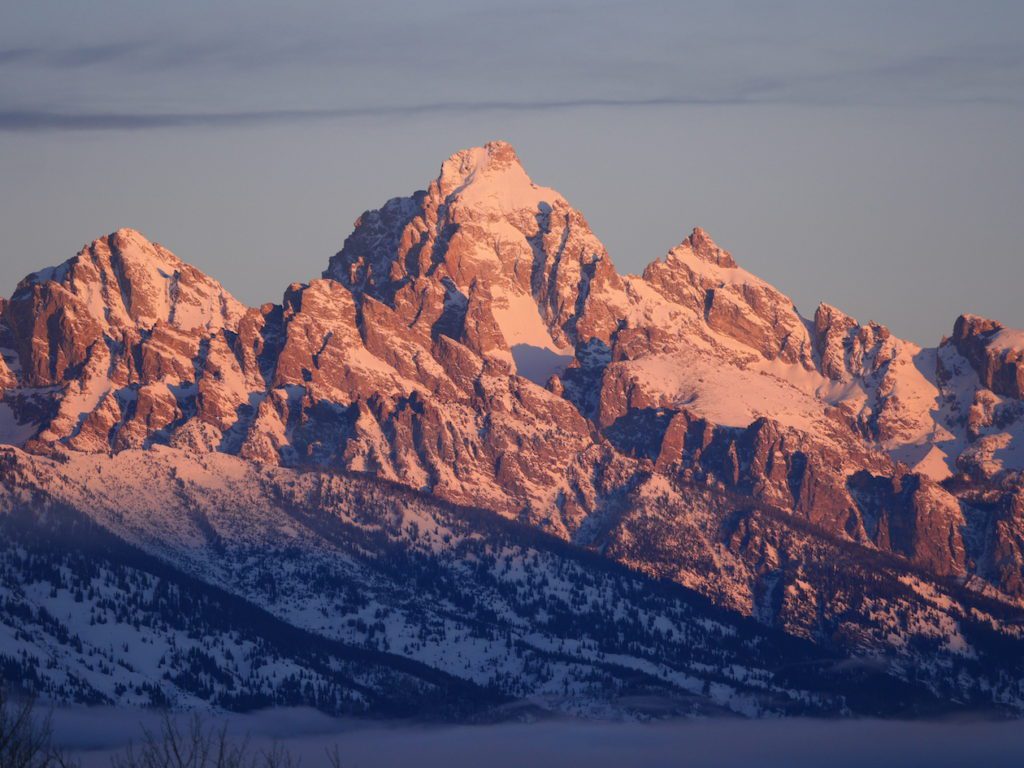
Mother Earth needs her offspring, our energy, perception and consciousness, to move evolution forwards. The earth and all living entities aren’t here for our benefit. Nature isn’t here to serve us. The evidence is we’re here to serve nature. We need to change our perspective so we see ourselves as here for the benefit and wellbeing of all life. Never mind the Anthropomorphic principle, our focus needs to shift to a Gaiamorphic principle, from being self-centered to Gaia-centered. We need to recognize our symbiotic relationship
– with the Earth and its resources,
– with all living beings creatures,
– and with each other.
It’s far too late in the game to expect that gradual, incremental progress can produce a comfortable, managed transition. We’re not making the change voluntarily – as the lack of progress over the last fifty years indicates – so the resulting crisis will simply make it mandatory. As Stephen Jay Gould explained in a TV interview thirty years ago (thinking of a nuclear winter), “It’s probably sheer hubris on our part to imagine that we can destroy the world. We can certainly destroy ourselves, and indeed, look set fair to do that. All that will happen is that the earth will cough twice, bandage her wounds, and in 5 million years you won’t notice the difference.”
Here’s how it might unfold in practical and rather painful ways. We want to hold on to cherished beliefs, values and illusions without questioning their basis or their value. We really don’t want to face our shadow sides, but it’s unavoidable in awakening, and why meditation, esp. vipassana, can be so uncomfortable. Stuff will come up. Almost every day, we see reports of people behaving in crazy, destructive ways, whether it’s a mass shooting, or a teenage boy killing a neighbor, because “he wanted to see what stabbing someone felt like”.
The flaws in our psychology will be – indeed, are being – triggered by societal breakdown. One reason that’s been advanced for not disclosing the full information available about UAP’s is that the shock in itself could lead to the collapse of civilization. Some other possible scenarios are also likely to be overwhelming:
1. All our emotional trauma, personal body “armoring” and energy stuckness comes up more or less at once to be welcomed and accepted. Once we truly accept our experience as it is, it transforms and releases of its own accord.
2. All our belief systems / hidden assumptions / cherished biases / conditioned values come to the surface and are seen to be no more than beliefs, with little basis in reality.
3. All the ways we use all symbolic experience (language, music, art, science) to manage and manipulate our experience and that of everyone around us, come up to be recognized and acknowledged, honestly and directly.
4. All the ways our personal, familial and social conditioning, comforting habits and addictive behaviors, protect us against experiencing the reality of our lives and society, come up to be evaluated for their real benefit.
These behaviors prevent us from dealing with the reality of our own – especially emotional – experience. They prevent us from seeing what by now should be blatantly obvious from the weather changes all around us. These habits block our seeing how predictions about climate change are being born out even faster than originally thought. We ignore the catastrophic risk we are running by not facing reality and the issues squarely.
“All the evidence is that Gaia will survive. She is a tough old bird. Even people will survive, in greatly reduced numbers. What people don’t seem to get is the message that what is at risk is civilization.” James Lovelock
Back in 1994, when I first heard the figure of 1-2 billion people by 2100 on a radio interview, the speaker’s solution was for every married couple to have no more than one child for the next hundred years. At present, the birth rate is falling below replacement levels in many countries, the US as well as China, Japan, and South Korea. But back then, this was about a month after the Cairo population conference, where Muslim attendees had made common cause with Catholics to repudiate birth control. So the radio interviewer – after a long pause – asked, “What happens if we don’t do that?” The speaker replied, “Oh, you don’t have to worry about it. War, famine, plague and misery will take care of it for you.”
David Hinton’s Wild Mind, Wild Earth acknowledges humanity’s center stage place in nature and evolution. We are part of nature, so everything we do, including our disassociation from nature and ensuing destruction and exploitation, is also part of nature. So if we get a starring role in the Sixth Mass Extinction, that’s still nature. Like every other species and every other type of life before us, we are affecting the balance of the environment and the atmosphere, only in our case, in a very negative way and destructive way.
“Suppose that the earth is a superorganism. …. The evolution of the species and the evolution of their environment are tightly coupled together as a single and inseparable process.
“Gaia theory is as out of tune with the broader humanist world as it is with established science. In Gaia, we are just another species, neither the owners nor the stewards of this planet. Our future depends much more upon a right relationship with Gaia, than with the never-ending drama of human interest.” James Lovelock: The Ages of Gaia
“If we are to survive the gauntlet of the next centuries, the Earth needs us to end values and habits that destroy it, and start new ones. This isn’t trivial: it demands that we relearn that our relationships with people and nature actually matter.
“Our era of interconnected crises – climate change, destruction of nature, inequality, pollution, disease – can only be ended by addressing their root causes, ie our numbers, appetites and mindsets of entitlement and convenience.
“Our paper, Earth at Risk, calls on leaders to recognise this crossroads of humanity, stop running in circles and draft new constitutions that are up to the task of navigating the future more wisely. The age of mindless individualism, profiteering and competition is now, evidently to many, ending abruptly.” Prof Phoebe Barnard & Liliana Karesh
Symbiosis of human consciousness with our world means the surviving 1-2 billion people will learn to do this in a constructive and positive way. We will become Gaiacentric rather than egocentric, and recognize how everything arises as a whole, interdependently – both a radical shift in consciousness, and the next stage in human-Gaia evolution.
We have to recognize our interdependence and act accordingly with everything on the planet, incl. Gaia herself. The symbiotic process itself may be like symbiosis in mitochondria – we are the bacteria merging with a larger organism, exchanging one function for another. The relatively few folk who get to do this will participate consciously, willingly, and with a deep, heart-felt appreciation. The luckiest people in the last 4,000 years will have escaped the yoke of patriarchal authority into being at one and in balance with life. They’ll have much more energy and vitality in their meridian systems, and consequently will be more aware. They may well see life through Cleve Backster’s Primary Perception, aware of their psychic / intuitive ‘First Sense’ (as James Carpenter calls it), or Teilhard’s ‘noosphere’. Those of us who have been trying to limit the damage we inflict on the planet, and are too old for this next venture, can only wish them well.
Much Love,
© Malcolm Fraser 2024. All rights reserved.
